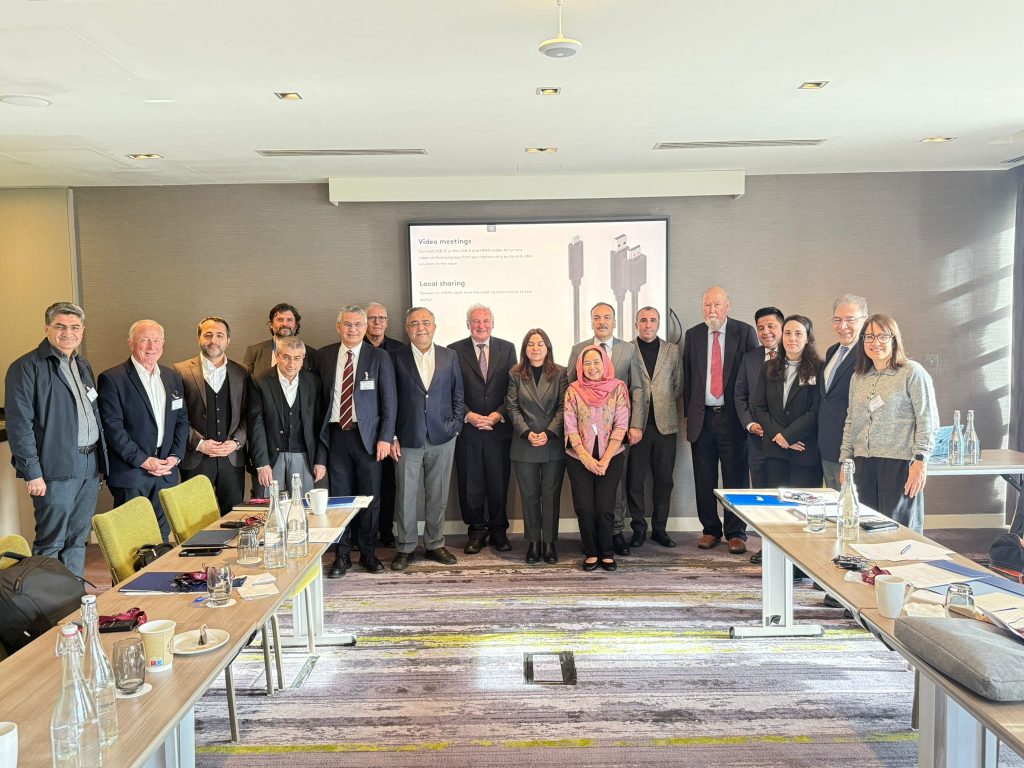The Democratic Progress Institute (DPI) held a comparative study visit in Dublin, bringing together a delegation from the National Solidarity, Brotherhood and Democracy Commission. The visit focused on exchanging experiences related to dialogue, reconciliation, and peacebuilding, drawing on lessons from peace processes in Northern Ireland, the Philippines, and Sudan.
Throughout the visit, speakers and experts shared insights into how various societies have managed complex political, social, and security challenges in their respective peace processes.
The first speaker, Tim Dalton, former Secretary General at Ireland’s Department of Justice and Equality, discussed how the Northern Ireland peace process addressed the legal and political dimensions of decommissioning and the reintegration of former combatants. Dalton emphasised the importance of careful language in peace processes to avoid undermining progress or damaging relationships between parties and the wider public.
Former Taoiseach Bertie Ahern, one of the key architects of the Good Friday Agreement, spoke about the process of disarmament and the critical role of trust-building in sustaining peace. Ahern reflected on the challenges of prisoner release, noting that strong leadership and persistence were essential to maintaining public confidence. He also highlighted the productive relationship he shared with former UK Prime Minister Tony Blair, underlining that continuous dialogue and debate were central to achieving lasting results.
In the afternoon session, John Lahart TD, Chair of the Oireachtas Foreign Affairs Committee, welcomed the delegation to Dublin. He expressed Ireland’s willingness to share its peace process experiences with its friends in Türkiye and commended the Commission’s efforts toward dialogue and reconciliation.
Dermot Ahern, Ireland’s former Minister of Foreign Affairs, spoke about the political journey from conflict and polarisation to peace, underscoring the importance of compromise and persistence. He recounted his participation in secret talks with the IRA, which carried significant political risk at the time. Despite setbacks, including violent incidents intended to derail negotiations, Ahern noted that determination and resilience were vital to keeping the peace process on track.
The final speaker, Raissa Jajurie, Minister of Social Services and Development of Bangsamoro and the first woman to join the Moro Islamic Liberation Front (MILF) Technical Working Group, shared experiences from the peace process in the Philippines. She explained that around 25,000–26,000 fighters in Mindanao had laid down their arms, while stressing that much work remained in supporting those who disarmed. Jajurie emphasised the importance of patience and highlighted the significant role played by the International Contact Group in helping overcome major challenges throughout the process.
The visit reflected DPI’s commitment to fostering mutual learning and understanding between societies that have experienced conflict. DPI recognises that while every conflict has its unique context, valuable lessons can be drawn from comparative experiences to strengthen dialogue and avoid repeating past mistakes.
